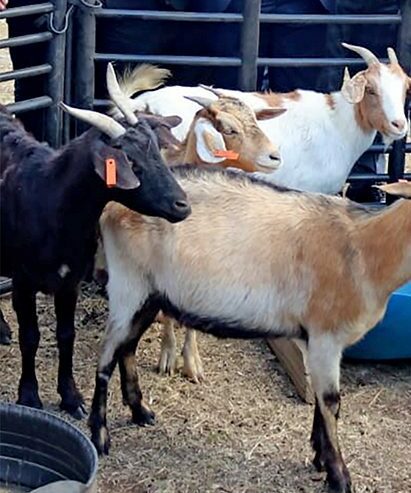Goats, commonly referred to in IsiZulu as izimbuzi, are deeply rooted in the African culture and belief system. They also hold a sentimental value to most rural communities.
Despite this, there has been little movement in commercialising the local goat herds into a thriving economy. But villagers in the northern KwaZulu-Natal region want to change this image by leveraging the commercial value of the indigenous goats.
They believe that the move will not only lead to the economic spinoffs for sleepy villages, but it will also revitalise the dilapidated rural towns.
Sixty-three-year-old Mam Delisile Mathaba of eNyezane, a rural area under Gingindlovu on the north coast, defines goat production as the newly found gold for rural communities.
“When I retired as a teacher in 2019, I decided to invest in goat farming. At the time, I had about 15 indigenous veld goats and I bought an additional 10 boer goats,” explained Mathaba.
“The idea was to diversify and have different breeds, and I can safely say that I do not regret my decision. I normally sell at auctions and to other neighbouring villages. In a bad month, I make about R 12 000.”
She remembers fondly that her connection and passion for goats started at a tender age of 12 years.
“My maternal grandfather was passionate about livestock. You could tell that he was emotionally connected to them. I fell more in love with the goats such that I would be by his side whenever he took the livestock for grazing. My grandfather only had three daughters including my mother, who was the last born.”
She said when she turned 15, her grandfather gave her two starter goats to look after, and that was the beginning of her lifelong journey and emotional attachment with the animals.
Another smallholder farmer, Dumile Nyathi of eNtumeni, a rural area under eShowe, said he had ventured into goat farming because of low input costs associated with the business.
“This business is not complicated and the beauty of it all is that the goats can adapt to any climatic condition. As much as I would want to grow the business, our main problem is accessing markets,” he said.
“We have long called for the building of at least one abattoir to service rural goat farmers in the district. But our cries have fallen on deaf ears. Goat farming has a potential of changing lives and the face of the rural economy, as well as reduce joblessness.”
In 2016, the KwaZulu-Natal department of agriculture and rural development announced that a goat master plan for the province had been drawn up to commercialise the untapped potential of goats.
According to the plan, in five years 7 000 goat farmers would have been commercialised including doubling goat productivity. Not much has happened since the announcement.
King Cetshwayo district mayor Thamsanqa Ntuli said plans were afoot to revitalise and commercialise goat farming within communities around the district. This, according to Ntuli will be done through forming cooperatives. The goats would be slaughtered and the meat sold to various countries abroad.
“We have already committed that each cooperation per local municipality will be given 10 goats as a starter. The good thing is that goats form the northern KZN are highly sought after abroad. Our main target are women and the youth,” said Ntuli.
He pointed out that the district will appoints experts to assist in turning the cooperatives into profitable ventures.
“The other plan is to collaborate with countries abroad so that once the goat meat had been processed, it can be sold to overseas market. The idea is to build a solid goat economy in the district.”
King Cetshwayo houses five local municipalities. These are the City of uMhlathuze, uMlalazi, Mthonjaneni, Nlkandla and Umfolozi.
Goat meat known as chevon is popular worldwide, especially in India, Middle Eastern countries, Caribbean countries, Bangladesh and Pakistan. Other western Europe countries have joined the market of goat meat lovers because it is considered as low in kilojoules, and it is seen as a healthier alternative to pork and beef.
The goat milk is also in high demand, as it can be milked several times in one day. The Kalahari red goat, boer goat and Savannah are considered a highly sought-after type of breed, mainly because of their highest reproductive rate.
KwaZulu-Natal is the largest goat market in South Africa. A survey conducted in 2013 by Hilton Sanders revealed that about 800 000 goats were slaughtered in the province for various traditional practices.
For more business news from Sunday World, click here.
Follow @SundayWorldZA on Twitter and @sundayworldza on Instagram, or like our Facebook Page, Sunday World, by clicking here for the latest breaking news in South Africa. To Subscribe to Sunday World, click here




